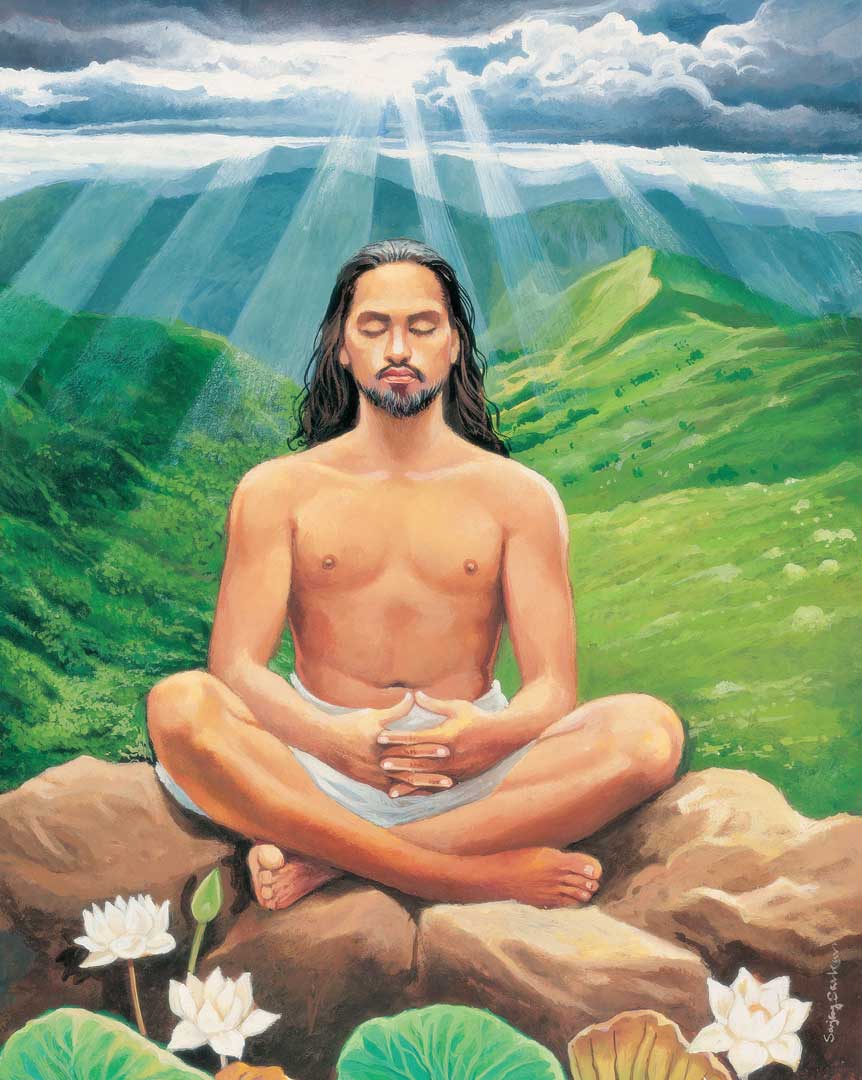

यं लब्ध्वा चापरं लाभं मन्यते नाधिकं तत: |
यस्मिन्स्थितो न दु:खेन गुरुणापि विचाल्यते || 22||
yaṁ labdhvā chāparaṁ lābhaṁ manyate nādhikaṁ tataḥ
yasmin sthito na duḥkhena guruṇāpi vichālyate
yam labdhva chaparam labham manyate nadhikam tatah
yasmin sthito na duhkhena gurunapi vichalyate
BG 6.22: Having gained that state, one does not consider any attainment to be greater. Being thus established, one is not shaken even in the midst of the greatest calamity.

Start your day with a nugget of timeless inspiring wisdom from the Holy Bhagavad Gita delivered straight to your email!
In the material realm, no extent of attainment satiates a person totally. A poor person strives hard to become rich, and feels satisfied if he or she is able to become a millionaire. But when that same millionaire looks at a billionaire, discontentment sets in again. The billionaire is also discontented by looking at an even richer person. No matter what happiness we get, when we perceive a higher state of happiness, the feeling of unfulfillment lingers. But happiness achieved from the state of Yog is the infinite bliss of God. Since there is nothing higher than that, on experiencing that infinite bliss, the soul naturally perceives that it has reached its goal.
God’s divine bliss is also eternal, and it can never be snatched away from the yogi who has attained it once. Such a God-realized soul, though residing in the material body, remains in the state of divine consciousness. Sometimes, externally, it seems that the Saint is facing tribulations in the form of illness, antagonistic people, and oppressive environment, but internally the Saint retains divine consciousness and continues to relish the bliss of God. Thus, even the biggest difficulty cannot shake such a Saint. Established in union with God, the Saint rises above bodily consciousness and is thus not affected by bodily harm. Accordingly, we hear from the Puranas how Prahlad was put in a pit of snakes, tortured with weapons, placed in the fire, thrown off a cliff, etc. but none of these difficulties could break Prahlad’s devotional union with God.